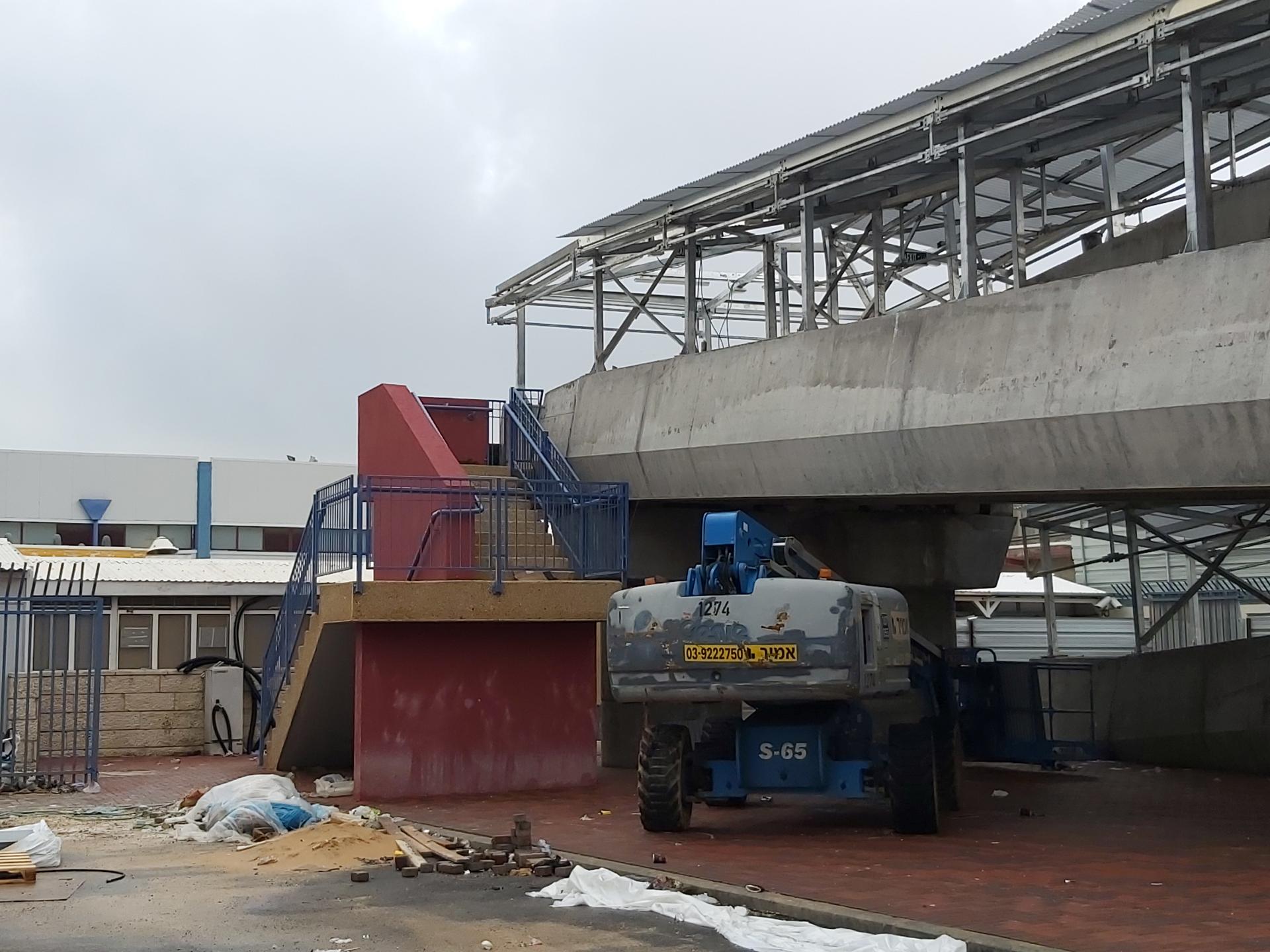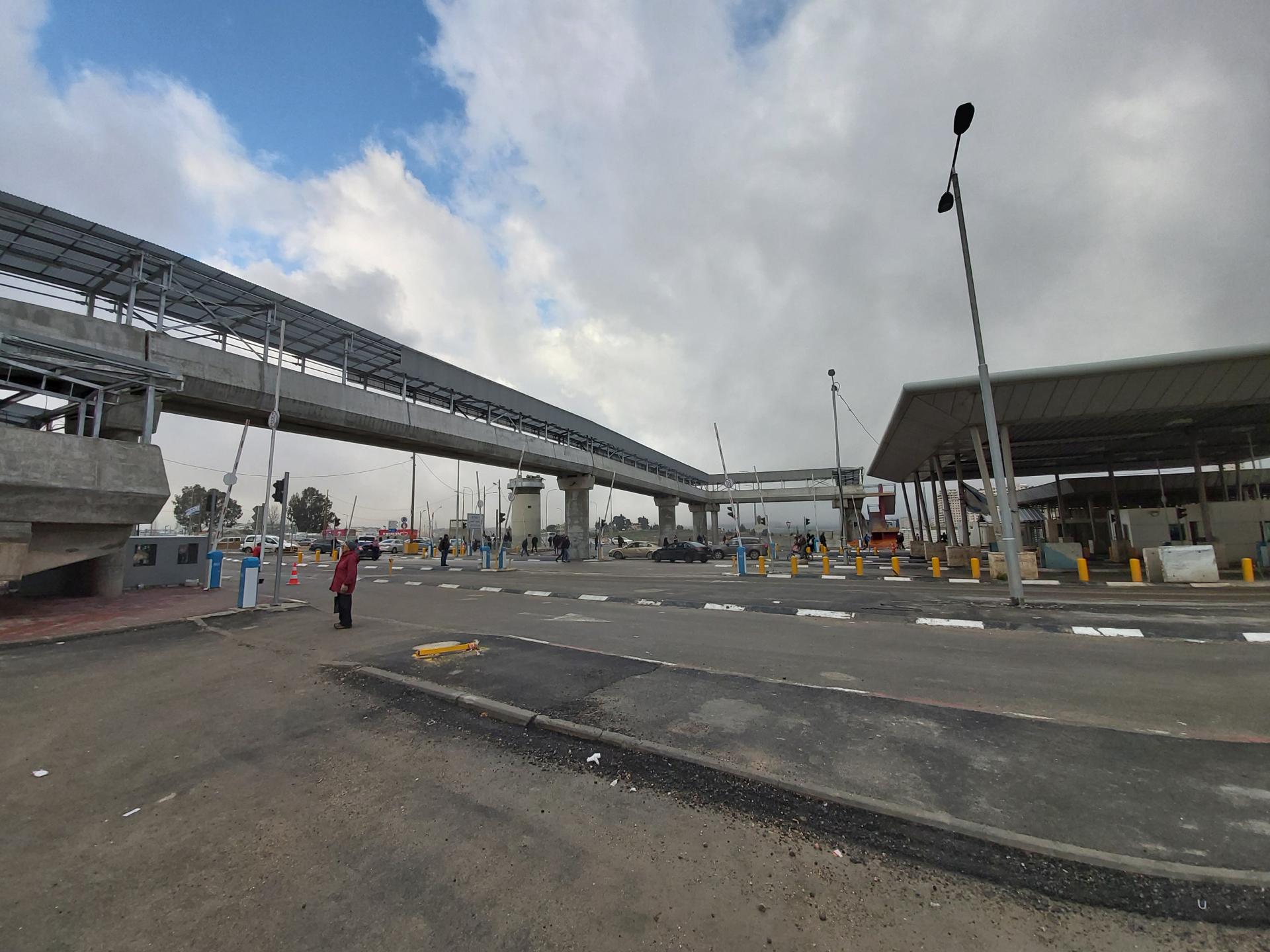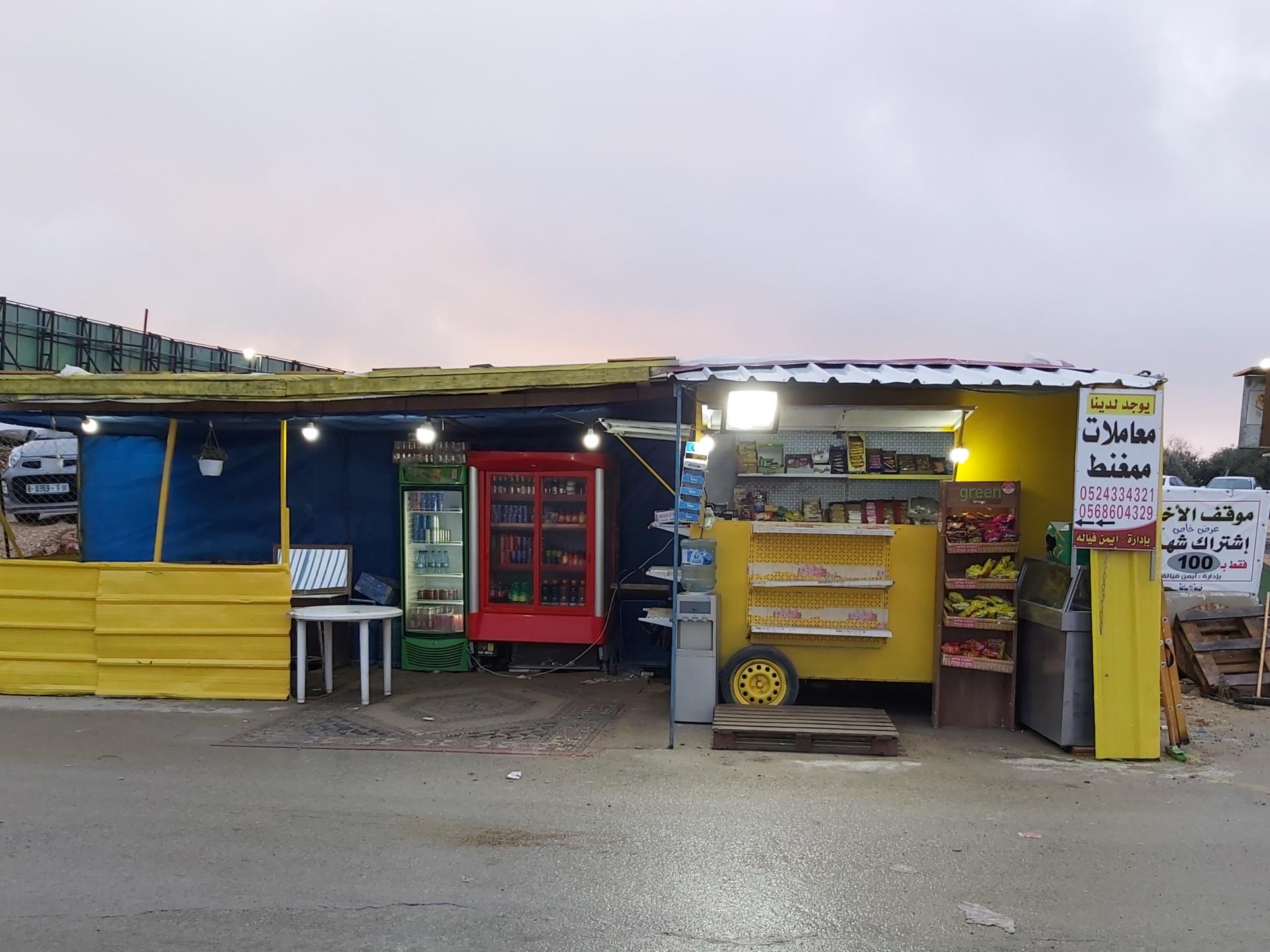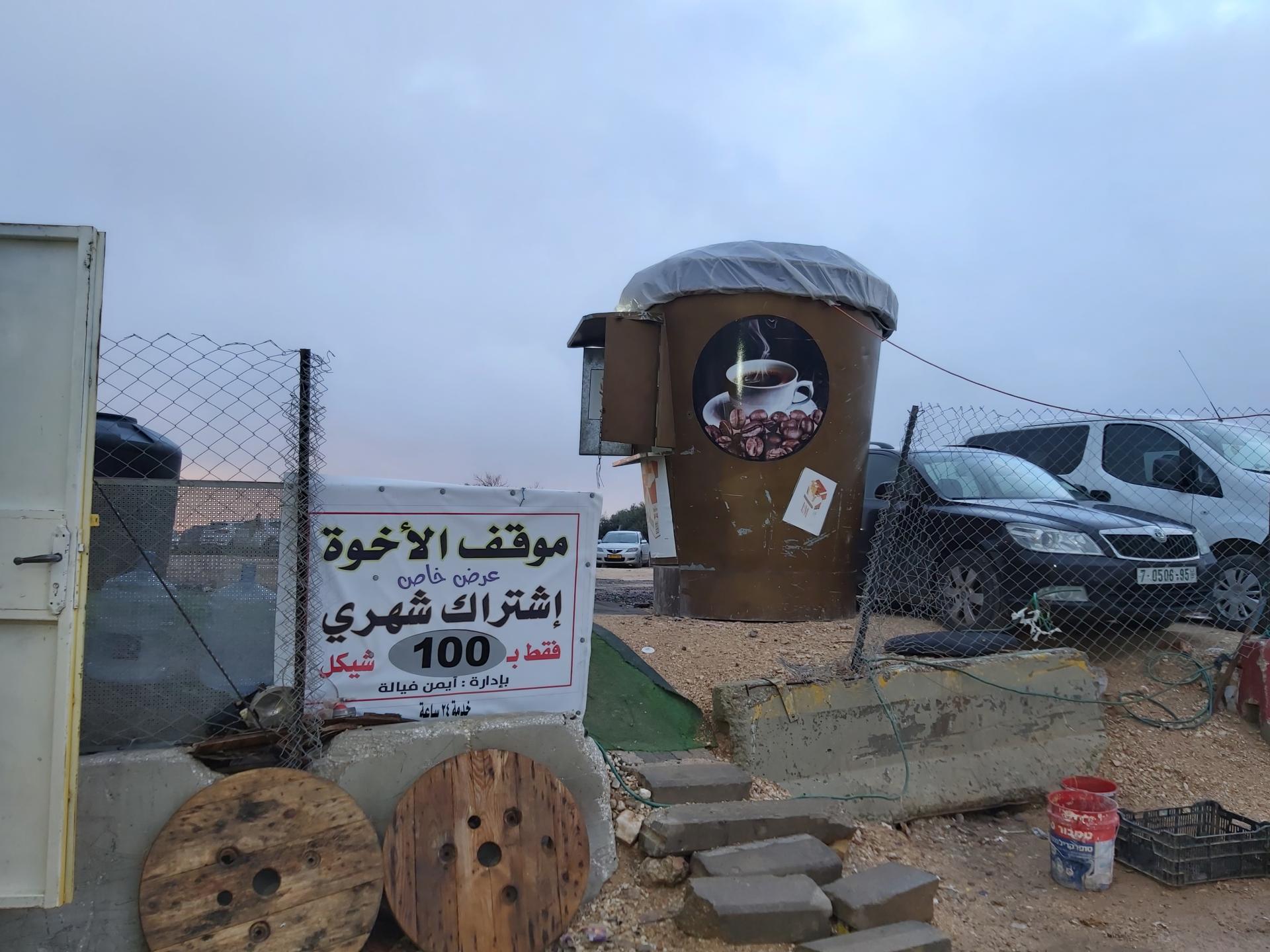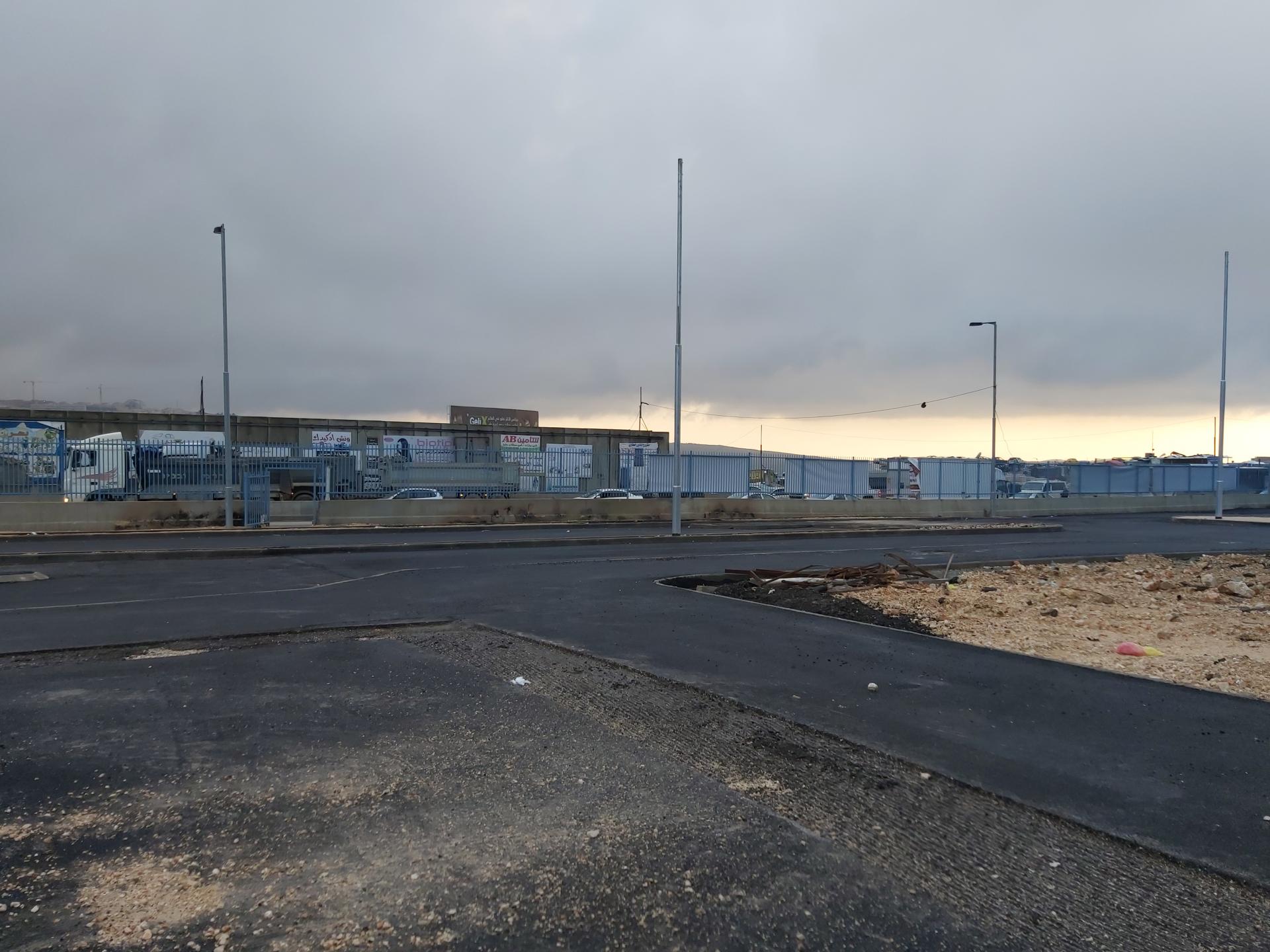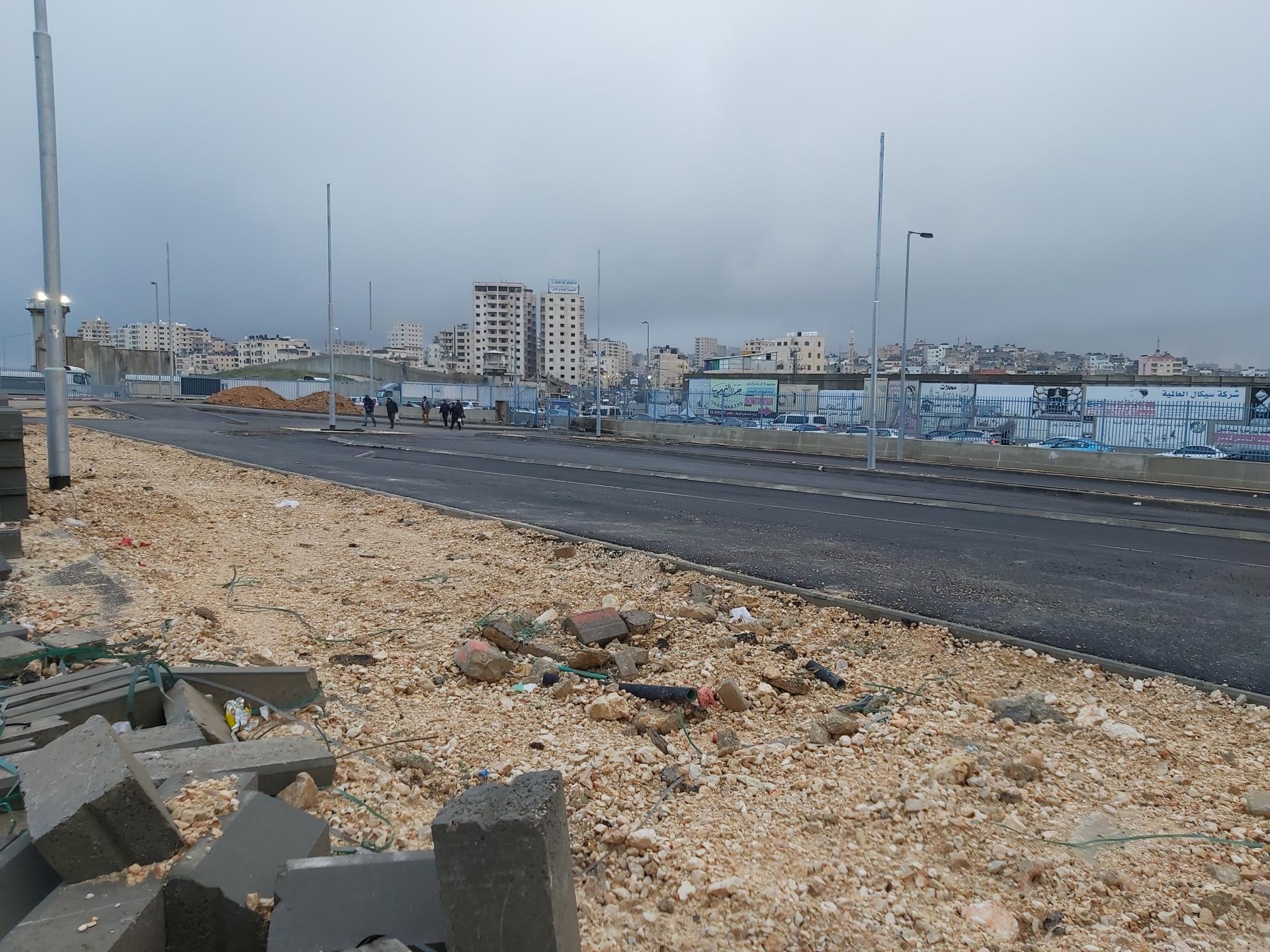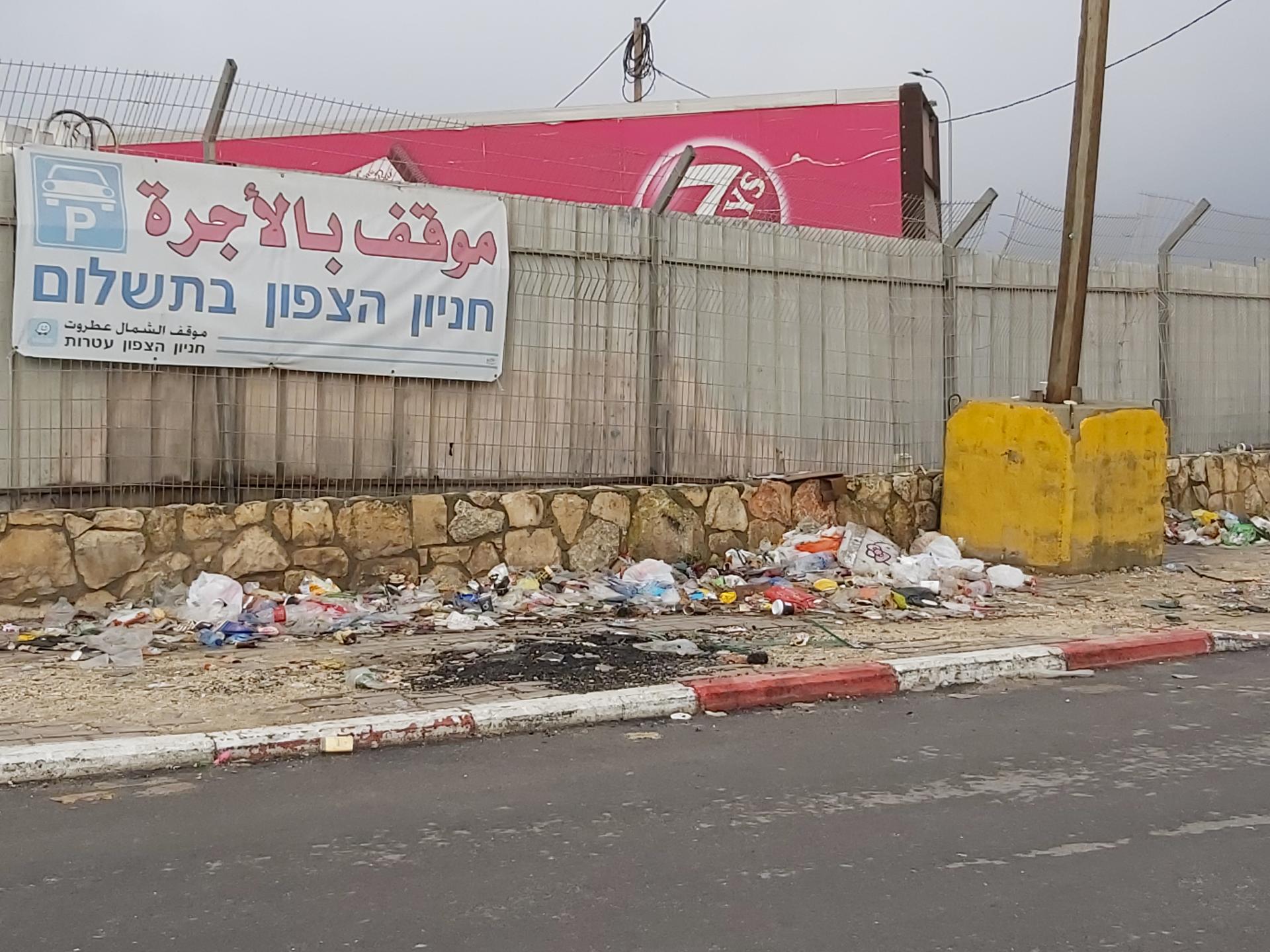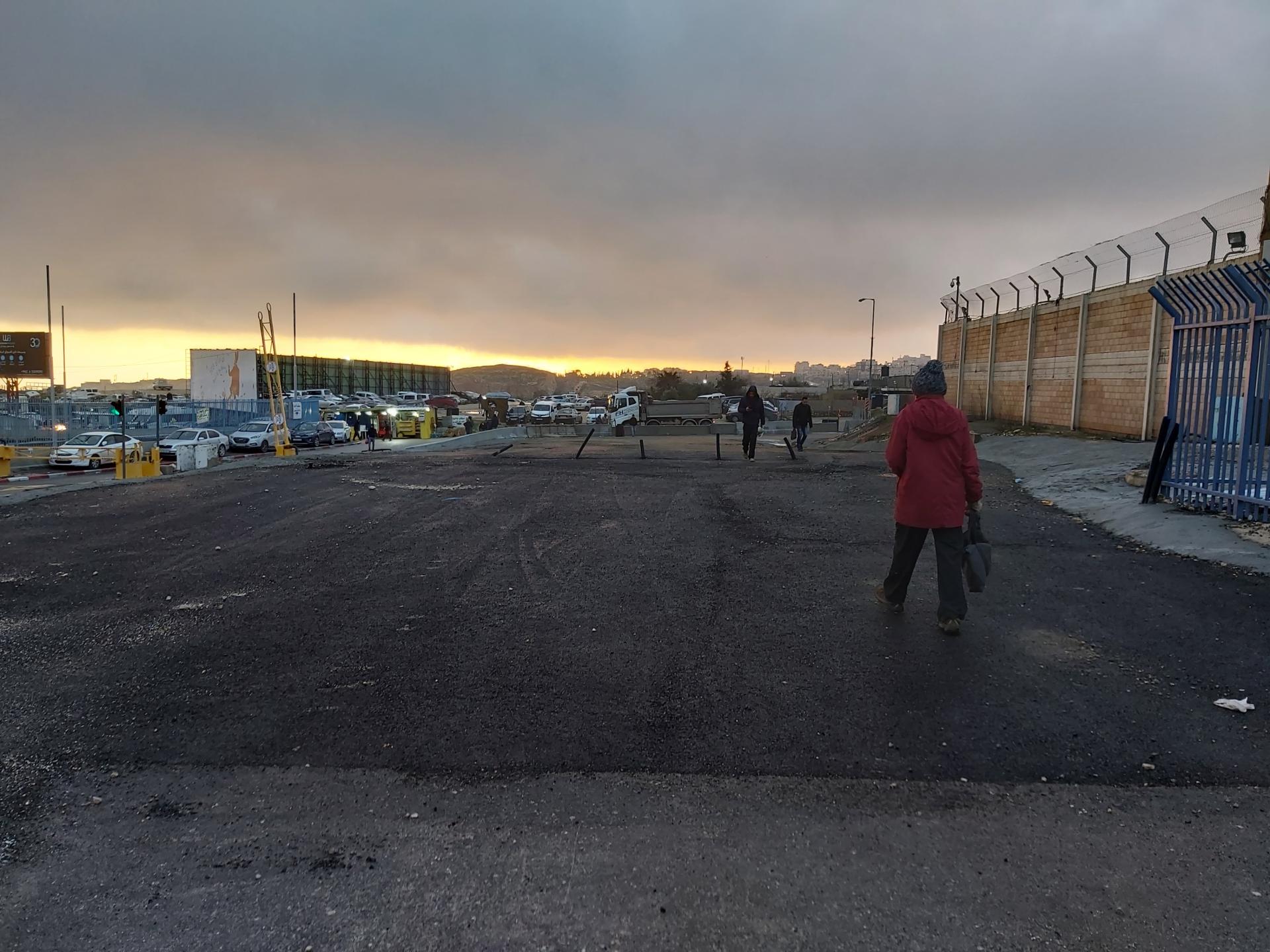Qalandiya
06.20. Road-building continues. Drainage channels have been dug at the sides of the road. We hope this will help against the flooding there has always been after rain. Today there is just a drizzle. We parked in a parking bay on the way to the checkpoint and made our way on foot to the Palestinian side. The pedestrian bridge is not yet complete, but we saw that it now has roofing. On our return, when there was full daylight, we photographed it.
The beigel seller was standing undercover next to one of the entrances. All three entrances were open and a constant stream of people came both from Qalandiya and from Ar-Ram, entering without delay. We went to the kiosk outside the checkpoint area, going via the upper level which had previously been a parking lot but is now paved and it, too, has a drainage channel. There are black plastic pipes poking out of the ground. Presumably, they will be for electricity to the positions to be opened on Fridays during Ramadan.
The kiosk has once again moved across the road. When we arrived one of its workers was cleaning the area, and with him was our acquaintance Aiman. He told us that once again he was forced to move. The position of the old kiosk, now above in that newly paved area, has been turned into an office and underneath it is a notice "Hanayat Ahim" ["Brothers' Parking"], offering a monthly parking subscription for 100 shekels. Aiman complains that, although they constantly look after cleanliness and good order, the authorities keep harassing them, confiscate equipment, destroy, etc.
In the area in front of the checkpoint, there has been a lot of work done – roads have been built and there is only a little building rubble left. Aiman says this is to be an area for taxis and buses. We wondered what would be done with the few remaining little patches – gardens, perhaps?
At about 7, we entered the checkpoint. Inside were short lines in front of the checking machines, but all 6 stations were open and progress was quick. Most of the Palestinians pass without delay through the electronic gates . We passed in a couple of minutes one of the manned positions.
. We passed in a couple of minutes one of the manned positions.

